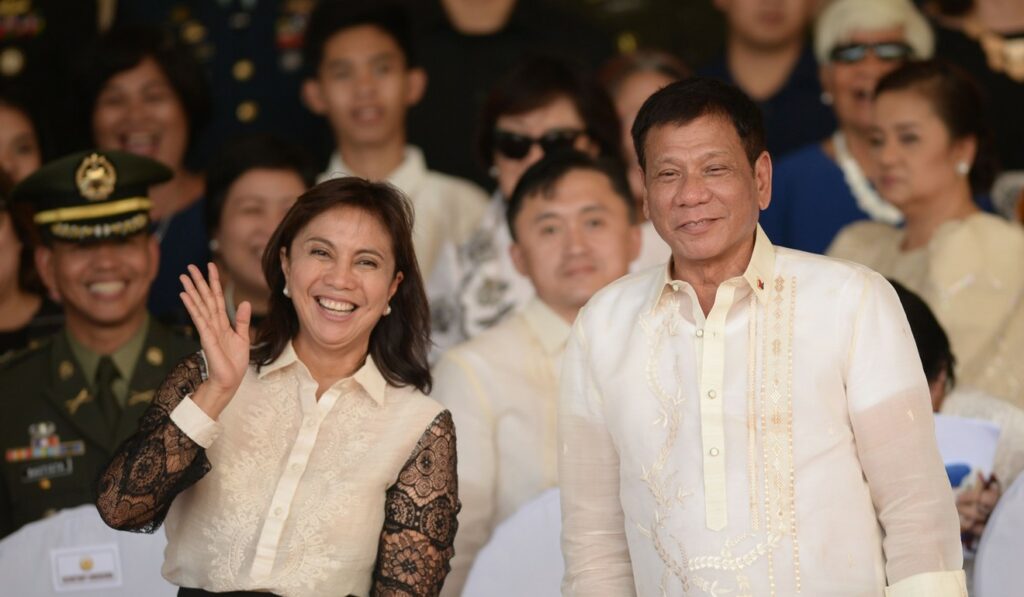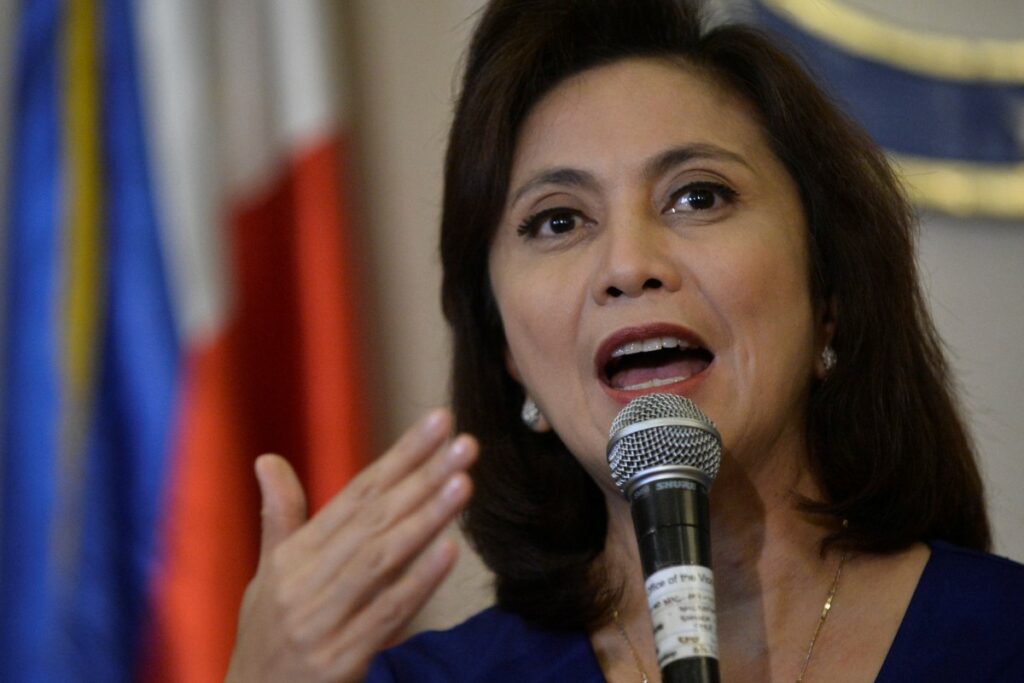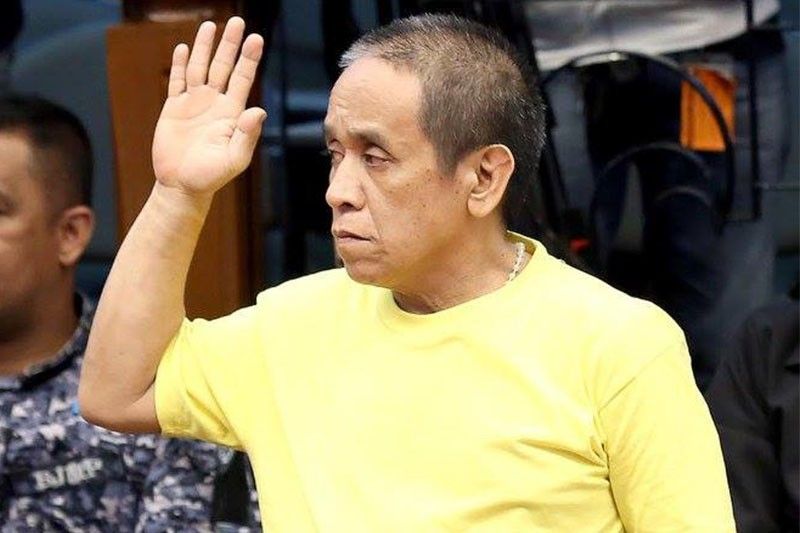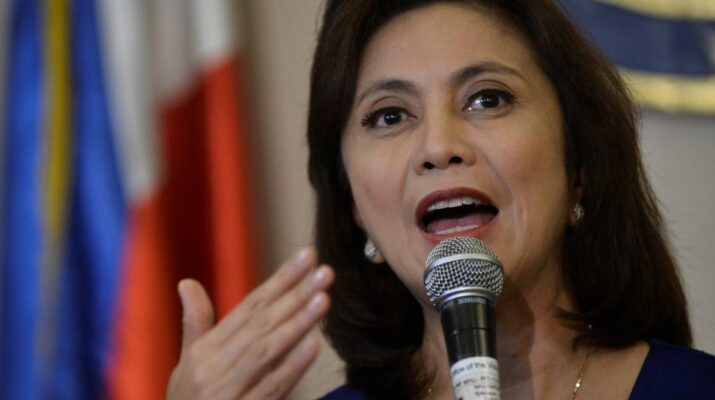Vice President Leni Robredo, a member of the main opposition Liberal Party (LP), was surprisingly appointed to co-chair the Duterte administration’s Inter-Agency Committee on Anti-Illegal Drugs (ICAD) in November 2019. It is a sensitive role that allowed the VP to be briefed on the findings of the country’s war on drugs operations, the cornerstone policy of President Rodrigo Duterte’s presidency.
Thus, when Robredo was fired from the position less than a month after her appointment it did not shock anyone. The administration had long accused members of the LP to be complicit in the country’s drug trade themselves, so why would the President appoint their most prominent member to lead the crackdown on narcotics?

To state things succinctly, President Duterte’s drug war has been an abject failure. Robredo divulged that three years after the bloody crackdown commenced, only 1 per cent of the illegal drug trade in the country had been curtailed.
Citing data from the Drug Enforcement Group of the Philippine National Police (PNP), Robredo said drug users consume 3,000 kilograms of shabu (crystal meth) per week or 156,000 kilograms per year. However, the same data shows the government only managed to seize 1,344.87 kilograms in 2019, 785.31 kilograms in 2018, 1,053.91 kilograms in 2017.
Culling the assets of drug traders has also been a disappointment, as data showed that the Anti-Money Laundering Council (AMLA) was only able to freeze Php1.4 billion of drug assets. This is a meager amount since 3,000 kilograms of shabu translates to Php25 billion per week or Php1.3 trillion per year.
Assessing why the results have been such a disappointment, Vice President Robredo gave her astute hypothesis: “It is really a failure because the campaign against illegal drugs has so many aspects but the street level enforcement became the only focus.”

Take for instance the Valenzuela drug smuggling scandal in May 2017, when a massive shipment worth Php6.4 billion (US$126 million) of shabu somehow eluded Bureau of Customs (BOC) checks and made its way into a warehouse in Valenzuela City. The contraband was shipped from China and was masked as kitchenware, which went undetected as BOC personnel allowed it to skip passing through an x-ray machine – a violation of its own rules which state that shipments from China must pass through an x-ray.
It is obvious that rogue elements in the BOC were to blame for the massive shabu supply entering the country, but the only suspect arrested in the entire fiasco was a bodegero or a warehouse caretaker named Fidel Anoche Dee, who was revealed to be semi-illiterate during the Congressional hearings.
Meanwhile in 2018, a court in Valenzuela acquitted nine other suspects involved in that smuggling case — including Chinese businessman Richard Tan who owned the warehouse where the narcotics were seized, and Customs broker Teejay Marcellana who signed-off the contraband as kitchenware.
How is a near-illiterate warehouse caretaker more guilty of smuggling illegal drugs than the businessman who owned the warehouse the smuggled contraband was stored, or the BOC worker who helped facilitate its clearance from Customs check?

Perhaps the most infamous was the death of 17-year old Kian delos Santos in August 2017. During a police crackdown on illegal drugs in Caloocan City the high-school student was found dead with gunshot wounds to his head, according to a police report he allegedly “fired shots at police officers” – who were trying to apprehend him for being a drug mule – prompting the officers to fire back, killing the teenager.
However, CCTV footage captured in the exact alleyway that Kian was killed told a different story: the teenager was dragged by two plainclothes policemen into the alleyway, contradicting the official report that he was running away from them. An eyewitness also approached journalist Saleema Refran of GMA News and told her that De Los Santos was begging police to spare his life when he was being dragged away, the victim’s last words reportedly were: “Please stop, I have an exam tomorrow.”
The CCTV footage captured and the eyewitness statement corroborated each other, which meant that Kian delos Santos was deliberately killed by police under the guise of the drug war. In light of the new evidence a court ordered the arrest of the three police officers behind the teenager’s death, and they were all proven guilty of the murder of Delos Santos in November 2018.
While justice was met by Kian’s bereaved family by jailing the perpetrators, stories like his are not uncommon under the drug war of President Duterte. In October 2016, the latter himself said that children who are killed accidentally during anti-drugs operations are just “collateral damage” of the drug war; meanwhile, his former police chief and now Senator Bato dela Rosa dismissed concerns of innocent lives lost in the drug war by saying “shit happens” during these operations.
The war on drugs has been waging on for three years yet the Duterte administration has nothing to show for it but a mere 1 per cent reduction in the drug trade. The gain the country receives is disproportionate to what we lose: innocent lives and families torn apart, while the drug scourge is still as rampant as before.
President Duterte’s strategy to end the drug trade is an utter failure as proven by the Vice President’s report, but will he modify it accordingly? It is proven that going after petty, street-level drug peddlers and drug addicts on the streets do not work to substantially curb the narcotics trade, so will he turn his sights to the wealthy drug lords?
If the President had the appetite or the courage to go after the “big fish”, he would have started three years ago. But seeing he doesn’t even see a problem with the costly blunders his present war on drugs causes, given his flippant attitude towards innocent deaths caused, it is a pipedream to believe we can see a more successful crackdown on the narcotics trade.

